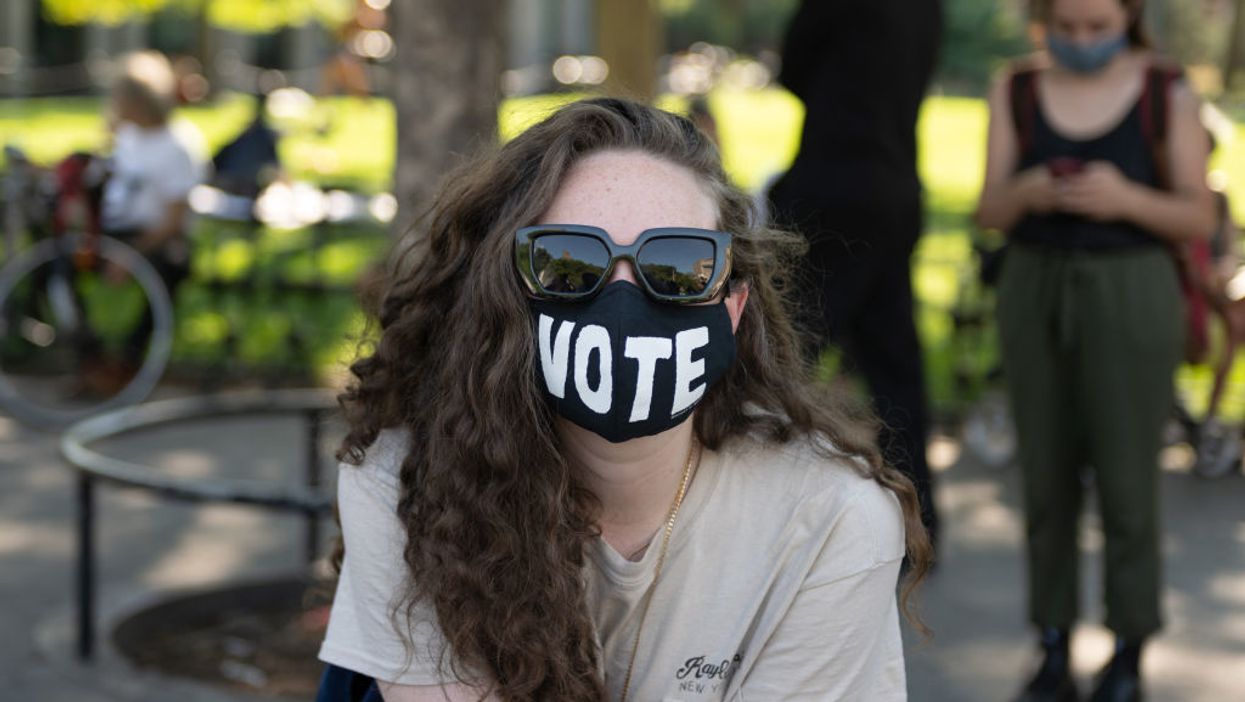Americans shouldn't just have the right to vote, they should be required to, a group of prominent policy thinkers proposed Monday.
To be precise, the report calls for a mandate on participation in elections — because citizens would be allowed to leave their ballot blank or vote for none of the above.
The proposal, "Lift Every Voice: the Urgency of Universal Civic Duty Votin g," was issued by a group formed by two prominent think tanks, the Ash Center for Democratic Governance and Innovation at the Harvard Kennedy School and the Brookings Institution.
Among the 27 members are prominent liberal columnist E.J. Dionne of Brookings and the Washington Post, who was co-chairman, and Norman Ornstein with the conservative American Enterprise Institute.
The report argues that requiring people to vote could help reverse the downward spiral of declining trust that "breeds citizen withdrawal which in turn only further increases the sense of distance between citizens and our governing institutions."
But instituting mandatory voting will be no mean trick. Polling done as part of the report shows that nearly two-thirds of Americans oppose the idea and nearly half are strongly opposed.
The report notes that while voter turnout increased dramatically in the 2018 midterm election, the percentage of those eligible who cast ballots has stayed pretty consistent over recent decades: 57 percent for presidential elections and 41 percent for off-year elections.
By contrast, in the approximately two dozen countries that require voting, turnout is upward of 80 to 90 percent.
Australia, which mandated voting in 1924, is the country most highlighted in the report because it's the biggest democracy with such a requirement. People there face a fine — about $14 in U.S. dollars — for not showing up at the polls. Still, only about 13 percent of those who don't vote end up paying a fine. The report argues the mandate leads people to take the voting obligation more seriously and has turned Election Day into a day of celebration in Australia.
Mandating people to participate in elections but not mandating that they vote is a key distinction in ensuring the change would pass constitutional muster, the report states. That's because case law is clear that the government cannot mandate speech, which is how requiring voting for particular candidates could be interpreted.
A tougher nut to crack than passing constitutional challenges would appear to be public attitudes.
Besides asking about whether voting should be mandated, pollsters also asked about general attitudes toward voting: 61 percent said they believe voting is both a right and a duty, while 34 percent said it was merely a right and the remainder said it was neither.
The authors see hope in those numbers when confronted with the large margins who reject mandatory voting with a modest $20 fine for those who fail to vote.
They also note that young people appear to be more open to the reform.
In addition to recommending mandatory participation, the report also makes several recommendations:
- Excluding partisan primaries from the mandate.
- Providing incentives for people to vote, including tax credits, lower public fees and lotteries.
- Creating a public education campaign.
- Increasing funding for election administration.
- Setting federal standards for elections.
- Restoring the Voting Rights Act.
The authors emphasize that they don't see mandatory voting as a panacea for all that ails our democracy. But they conclude that "it can help rejuvenate our civic culture and expand confidence in our democratic system."




















Trump & Hegseth gave Mark Kelly a huge 2028 gift